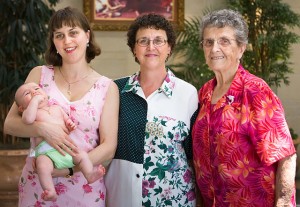
Many temporary foreign workers are employed by immigrant-run businesses like the above, and data from Citizenship and Immigration Canada shows that the majority are men (CICS News)
The data, collected by Citizenship and Immigration Canada (CIC), shows that over 143,000 men entered the country in 2012 as temporary foreign workers (TFWs), over double the approximately 70,000 TFWs who were women.
Men, who are the primary breadwinner in most households around the world, are often driven to work abroad by pressure to provide for their families, when wages in their own country are inadequate.
A recent MacLean’s story on outgoing foreign remittance from individuals in Canada reports that the country has the highest foreign remittance rate in the world, at $667.57 per capita, suggesting that many of these TFWs are in fact sending the money they earn in Canada to family living in their country of origin.
Occupations of male and female temporary foreign workers
The CIC data also points to male and female TFWs tending to work in different types of occupations. While 75 percent of male TFWs worked in occupations that have well defined skill levels (e.g. managerial, professional, skilled and technical), only 40 percent of female TFWs did the same.
Six out of ten female TFWs were categorized as working in occupations where the skill level was not stated, which usually either means an individual is a family member of a foreign worker, or they are working in an unskilled occupation.
More women becoming permanent residents than men
Despite men outnumbering women in the Temporary Foreign Worker Program (TFWP), slightly more women become permanent residents in Canada than men every year.
TFWs with skilled work experience in Canada can qualify for permanent residence through economic class immigration programs like the Federal Skilled Worker Program (FSWP) and Canadian Experience Class (CEC), however the number of men who become permanent residents through economic class programs is only slightly higher than the number of women.
This could suggest that more women apply for permanent residency from outside the country than men, making up for the larger number of men whose path to permanent residency was through the TFWP.
What puts women over the top in the total permanent residency numbers is the family class immigration programs, which grant 37 percent more women permanent residency than men, mostly as a result of more foreign women being sponsored for immigration by their Canadian spouse than foreign men.








